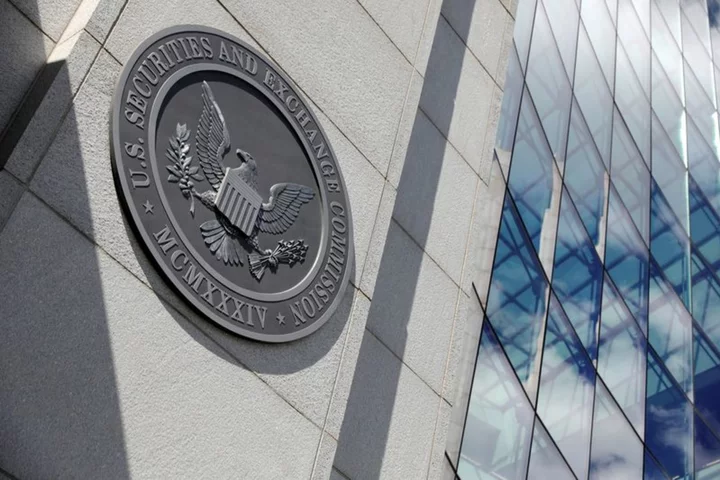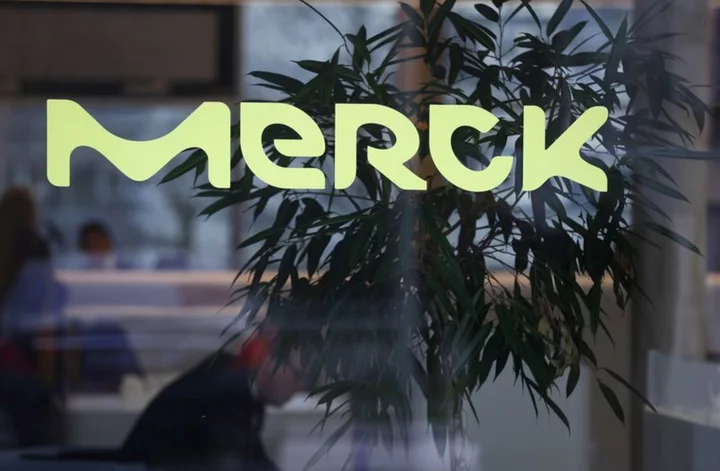By Andrew Chung and John Kruzel
WASHINGTON The U.S. Supreme Court is poised on Wednesday to consider the legality of the Securities and Exchange Commission's in-house proceedings to enforce investor-protection laws and impose penalties in a case that could broadly undercut the power of federal agencies.
The nine justices are due to hear arguments in an appeal by President Joe Biden's administration of a lower court's decision restricting the SEC's in-house tribunal system. The New Orleans-based 5th U.S. Circuit Court of Appeals in 2022 ruled that the SEC's in-house proceedings violate the U.S. Constitution's Seventh Amendment right to a jury trial and infringe on presidential and congressional powers.
The case involves hedge fund manager George Jarkesy, who the SEC fined and barred from the industry after determining he had committed securities fraud.
A Supreme Court ruling in favor of Jarkesy could reduce or delay action against misconduct by brokers, investment advisers and others, and potentially frustrate enforcement at other agencies as well, according to legal experts.
Critics of the SEC have said that it has an unfair advantage litigating cases before its own judges in "administrative proceedings" rather than before a jury in federal court. The SEC, which enforces various U.S. laws that protect investors, pursued 270 new in-house proceedings in the fiscal year that ended on Sept. 30, compared to 231 in federal court.
The SEC in recent years has faced a series of legal attacks even as the Supreme Court, with its 6-3 conservative majority, has signaled skepticism toward expansive federal regulatory power. The court in 2018 faulted the way the SEC selected its in-house judges, and in April made it easier for targets of agency actions to mount challenges in federal court.
Jarksey's challenge to the SEC is supported by numerous conservative and business groups, which have complained about the regulatory reach of the federal "administrative state" in areas such as energy, the environment, climate policy, workplace safety and financial regulation.
The SEC in 2011 began investigating Jarkesy, who founded two hedge funds with his Houston-based investment advisory firm, Patriot28 LLC. The funds had about 120 investors and roughly $24 million in assets under management.
The SEC's charges against Jarkesy and his firm proceeded before an in-house judge, who found that Jarkesy and his firm violated the Securities Act of 1933 and other laws including by misrepresenting the identity of the funds' auditor and value of the holdings. The agency then upheld the judge's findings.
The SEC ordered Jarkesy and his firm to pay a $300,000 civil penalty and Patriot28 to disgorge nearly $685,000 in ill-gotten gains.
The 5th Court threw out the SEC's decision. In addition to its conclusion about the right to a jury trial, the 5th Circuit found that Congress gave the SEC too much power to choose whether to bring cases in-house or in federal court, and that job protections for its administrative judges make them too difficult to remove, infringing on presidential powers under the Constitution.
The Supreme Court is expected to rule by the end of June.
The justices also are set to rule in the coming months on whether the U.S. Consumer Financial Protection Bureau's funding structure conforms with the Constitution and could overturn a decades-old precedent that helps federal agencies defend regulatory actions in court. They heard arguments in that case in October.
(Reporting by Andrew Chung in New York and John Kruzel in Washington; Editing by Will Dunham)









